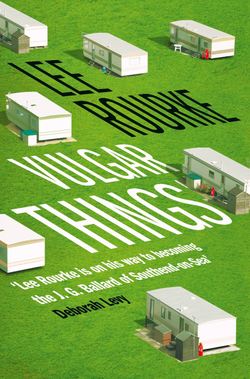Читать книгу Vulgar Things - Lee Rourke - Страница 15
FRIDAY recollections
ОглавлениеThe train journey from Fenchurch Street Station to Benfleet passes without incident, apart from a couple of trips to the toilet in the next carriage to vomit – something that repels the other passengers unfortunate enough to be able to hear my retching. As I walk back to my carriage the second time I hear two women talking about me, and I purposely slow my steps so I can hear each word.
‘Probably on drugs …’
‘It’s disgusting …’
‘Really … on a train?’
‘It’s disgusting …’
‘Other people around, too …’
‘Horrid.’
‘Some people have no manners.’
‘It’s disgusting …’
‘I hope he cleaned it up …’
‘Stop it!’
‘What?’
‘I can’t think about it …’
I walk down the aisle, back to my seat in the next carriage. I don’t care. It doesn’t matter to me. I’ve packed a bag with enough clothes to last a week. I figure that’s how long it should take me to clear up Uncle Rey’s caravan. I’m not sure what to expect. I try to remember when it was I last saw him, but I can’t pin down any single encounter. He comes to me in a blur of phrases, the most prominent being: ‘I like it here, below the sea …’
He would always talk about the sea: how the island lay below it, everything in his life existing below sea level. It seemed to suit him, out there, all alone. Other phrases, other words appear in fits, as do events, songs and smells. I have vivid recollections of his stinking caravan from when I visited the couple of times to smoke weed with him, when I was a teenager. I liked him back then, even though my father distrusted him. Whenever I returned, my father would be there waiting for me. He would always say the same thing: ‘We lost him to wacky baccy and strange ways. He’s better out there on the island. It suits him out there below the sea.’
This was before my dad died. I can’t remember Dad ever visiting Uncle Rey. I just thought they didn’t get on. I never gave it much thought really. I always liked Uncle Rey, the few times I met him. His gnarled face cheered me up, his rasping cigarette/marijuana-burned voice, the songs he’d sing, his dreadful ukulele playing. Everything about him intrigued me: the fact that he’d never worked, had opted out. He seemed real in ways my father never could. Uncle Rey was lost; he made perfect sense to me.
I look out of the window. Green trees merging with the dark mud of the estuary, turning to a constant brown, a slutch that seems to stretch all the way to the horizon. It’s an unforgiving, blank landscape that exposes any irregularities: a church, a tractor, horses, a boat in a yard – before they too become dirt blots, blurs, interrupting the flatness of things.
